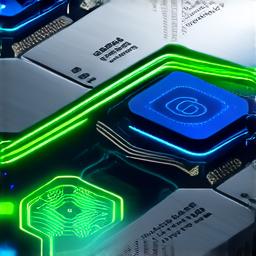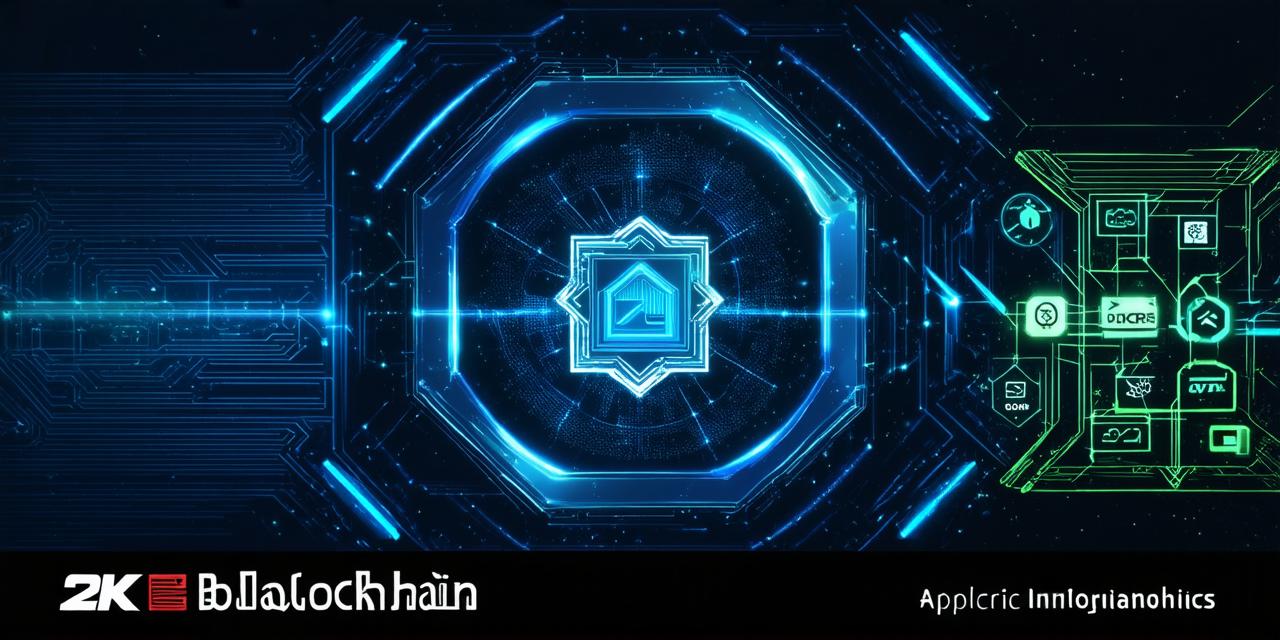Blockchain technology has emerged as one of the most revolutionary and transformative technologies of our time. Originally introduced as the underlying technology behind Bitcoin, blockchain has since been adapted to a wide range of industries and applications.
Supply Chain Management
One of the most significant applications of blockchain technology is in supply chain management. Blockchain provides a secure and transparent way to track products throughout their entire lifecycle, helping to reduce fraud, improve traceability, and increase efficiency. By using blockchain, companies can create an immutable record of each product’s journey from manufacturer to end-user, providing greater transparency and accountability.
For example, Walmart has implemented a blockchain-based system that allows it to track the origin of food products, from farm to shelf. This helps to prevent contamination and ensure that consumers are getting safe, high-quality products. Similarly, the fashion industry can use blockchain technology to trace the journey of clothing items, from raw materials to finished product, ensuring that the supply chain is ethical and sustainable.
Smart Contracts
Another important application of blockchain technology is in smart contracts. Smart contracts are self-executing contracts with the terms of the agreement between buyer and seller being directly written into lines of code. They can automate many of the processes involved in traditional contract negotiation and execution, such as payment processing and dispute resolution. This can help to reduce costs, increase efficiency, and improve transparency.
The Ethereum blockchain is often used to create smart contracts for real estate transactions. For example, a buyer can use a smart contract to automatically transfer ownership of a property once certain conditions are met, such as the seller delivering the property in good condition and providing the necessary documentation. This eliminates the need for intermediaries like lawyers and notaries, reducing the time and cost involved in the transaction.
Voting Systems
Blockchain technology can also be used to create secure and transparent voting systems. By using blockchain, each vote can be encrypted and stored in a decentralized database, making it difficult to tamper with or alter the results. This can help to increase trust in the voting process and reduce the risk of fraud.
West Virginia has implemented a blockchain-based voting system that allows military personnel to vote securely from overseas. The system uses blockchain technology to ensure that each vote is counted accurately and transparently, while also providing greater security and accessibility for military personnel who may not have access to traditional voting systems.
Identity Verification
Blockchain technology can also be used for identity verification, as it provides a secure and decentralized way to store and manage personal data. This can help to reduce identity theft and improve security. For example, Microsoft has implemented a blockchain-based identity system that allows users to control their own personal data and use it to verify their identity online.
The use of blockchain for identity verification can also help to improve privacy and reduce the amount of personal data that is collected and shared without consent. By using blockchain technology, individuals can have greater control over their personal data, allowing them to decide what information they share with others and how it is used.
Healthcare
Blockchain technology can also be used in healthcare, as it provides a secure and transparent way to store and share medical records. This can help to improve patient outcomes, reduce costs, and increase efficiency. The MediLedger project is using blockchain to create a secure and interoperable system for storing and sharing medical records.
By using blockchain technology, healthcare providers can securely share medical records with other providers, regardless of their location or affiliation. This can help to improve patient care by providing access to up-to-date and accurate medical information. It can also help to reduce costs by eliminating the need for intermediaries like insurance companies to verify medical claims.

Cryptocurrencies
Of course, one of the most well-known uses of blockchain technology is in cryptocurrencies like Bitcoin. These digital currencies use blockchain to record transactions and maintain a decentralized ledger of all transactions. This allows for secure, peer-to-peer transactions without the need for intermediaries like banks.
Cryptocurrencies have disrupted traditional financial systems by providing individuals with greater control over their finances and eliminating the need for intermediaries like banks. This has enabled more people to participate in the global economy and has created new opportunities for businesses to operate on a decentralized platform.
Conclusion
In conclusion, blockchain technology is a powerful tool that can be used in a wide range of industries and applications. From supply chain management to voting systems, blockchain can help to improve transparency, security, and efficiency. As the technology continues to evolve, we can expect to see even more innovative uses emerge. So whether you’re a developer or simply someone interested in new technologies, it’s worth exploring what blockchain can do for you.
FAQ
Q: What is blockchain technology?
A: Blockchain technology is a decentralized, distributed ledger that records transactions across a network of computers. It provides a secure and transparent way to store and share data, eliminating the need for intermediaries and enabling peer-to-peer transactions.
Q: How does blockchain work?
A: Blockchain works by using cryptography to secure each transaction on the ledger. Each transaction is verified by nodes on the network and added to a block of transactions. Once a block is full, it is added to the chain, creating a permanent record of all transactions that have occurred on the network.
Q: What are some common applications of blockchain technology?
A: Some common applications of blockchain technology include supply chain management, smart contracts, voting systems, identity verification, healthcare, and cryptocurrencies. Blockchain technology can be used in any industry where there is a need for secure and transparent record-keeping or peer-to-peer transactions.
